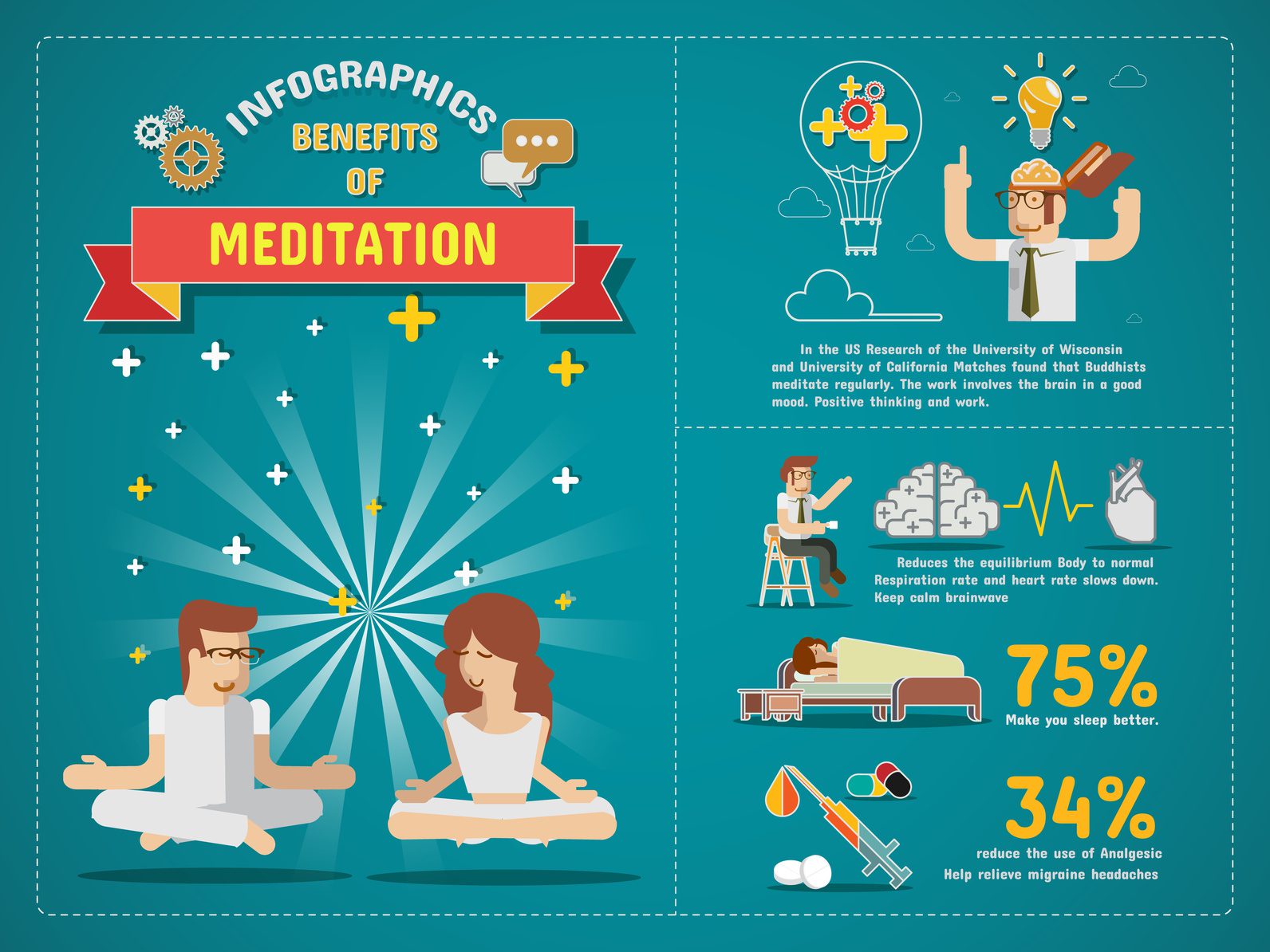We have been bringing the benefits of meditation to light for some time now. Needless to say, we can’t share enough good things about this ancient peaceful practice. Meditation can literally transform your life from the inside out. Better yet, it only requires your willingness and presence in order to get started. Everyone meditates for different reasons. And there is no ‘wrong’ or ‘right’ way to do it.
Meditation is very much a personal journey. So no two people will have the same rituals when it comes to their practice. However, many people report the same benefits across the board after starting their meditation practice.
Meditation is not a means to an end. It is both the means and the end. – Jiddu Krishnamurti
This is what happens to your body when you meditate:
It decreases tension in the body.
One of the physical benefits of meditation includes feeling lower stress in all areas of the body. During meditation, the mind and body become extremely relaxed, which helps reduce cortisol levels. Because mindfulness meditation lowers stress and anxiety, this results in other important advantages, such as lessening the occurrence and severity of migraines, decreasing PMS symptoms in women, reducing joint pain and muscle aches, and much more. Anywhere that you experience tension in the body, meditation can alleviate the stress that causes this rigidity, and ultimately revitalize the body’s cells.
It slows down your heart rate and regulates breathing.
Numerous studies have attested to the fact that meditating helps lower the resting heart rate and slow down breathing. When you quiet the mind and focus solely on your breath, you will start tuning out from the fast-paced reality that most of us live in, and instead enter a space of solitude and peace. As your heart rate and breathing become regulated, this lowers the risk of many diseases, including high blood pressure, heart attacks, and strokes. You can even try a heart chakra meditation in order to let go of feelings of sadness or anger, and welcome love and compassion into your energy field.
You might also try mantra meditation. This practice focuses meditating on a specific phrase that focuses on an area you wish to work on. For example, to open your heart chakra and release stress from this region of the body, you could say, “I give and receive love openly, and release feelings that make my heart heavy.”
Meditation can lower blood pressure.
Another physical benefit of meditation is that your blood pressure could drop significantly, as proven by the patients in a study. Dr. Zusman, director of the hypertension program at Massachusetts General Hospital, now prescribes meditation to his patients more often than he recommends medication. He helped oversee a three-month study in which patients being treated for high blood pressure with prescription drugs took part in weekly one-on-one meditation sessions to learn the practice for themselves. After completing the study, many patients showed a remarkable drop in blood pressure. And, they dropped some of their medication.
Meditation increases the formation of a compound in the body called nitric oxide. This checmical allows blood vessels to open, therefore lowering blood pressure.
It makes your immune system stronger.
Meditation can increase the body’s immunity by boosting the presence of antibodies within the blood, which help fight infections. One study performed by researchers at UCLA found that HIV positive patients who meditated regularly maintained their level of CD-4 cells (a type of white blood cell that protects the body from infections), while those who did not meditate showed a drastic decrease in these cells.
Another study conducted by researchers from the University of Wisconsin found that, out of the 48 people who were given flu shots, the group that took part in regular meditation over the course of eight weeks had higher levels of antibodies in their blood compared to the group that did not meditate.
Meditating regularly activates the parasympathetic nervous system.
Everyone’s nervous system is comprised of two parts: the sympathetic and parasympathetic nervous systems. Both these systems work together in order to maintain the proper functions of the nervous system. However, they have marked differences. The sympathetic nervous system controls our fight-or-flight response, raising blood pressure, increasing our heart rate, and contracting blood cells. In our stressful world, many people’s sympathetic nervous systems are constantly working to fight off all external stimuli that overwhelm our senses after repeated exposure.
However, meditation activates the parasympathetic nervous system, which counters the adverse effects of the overworked sympathetic nervous system. This part of the nervous system restores relaxation to the body by lowering the heart rate. Additionally, it is responsible for expanding the openings of the blood vessels and reducing stress levels.













 Community
Community

